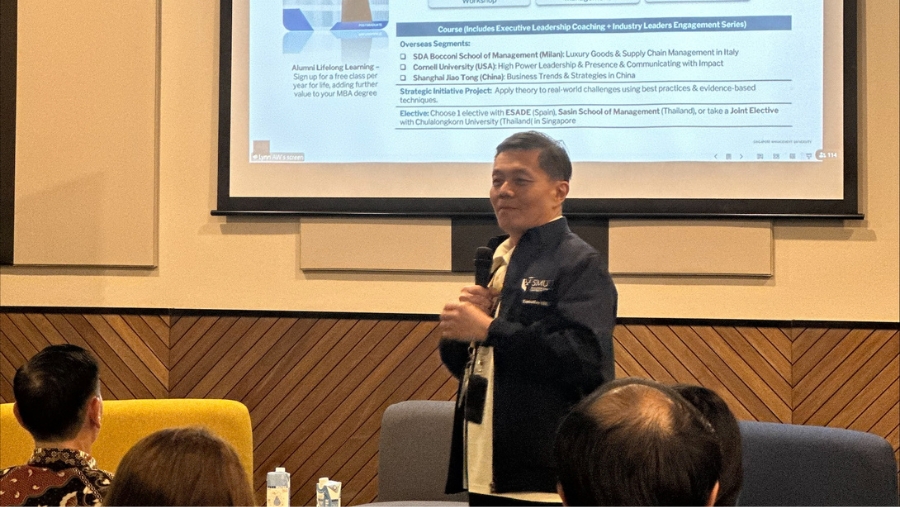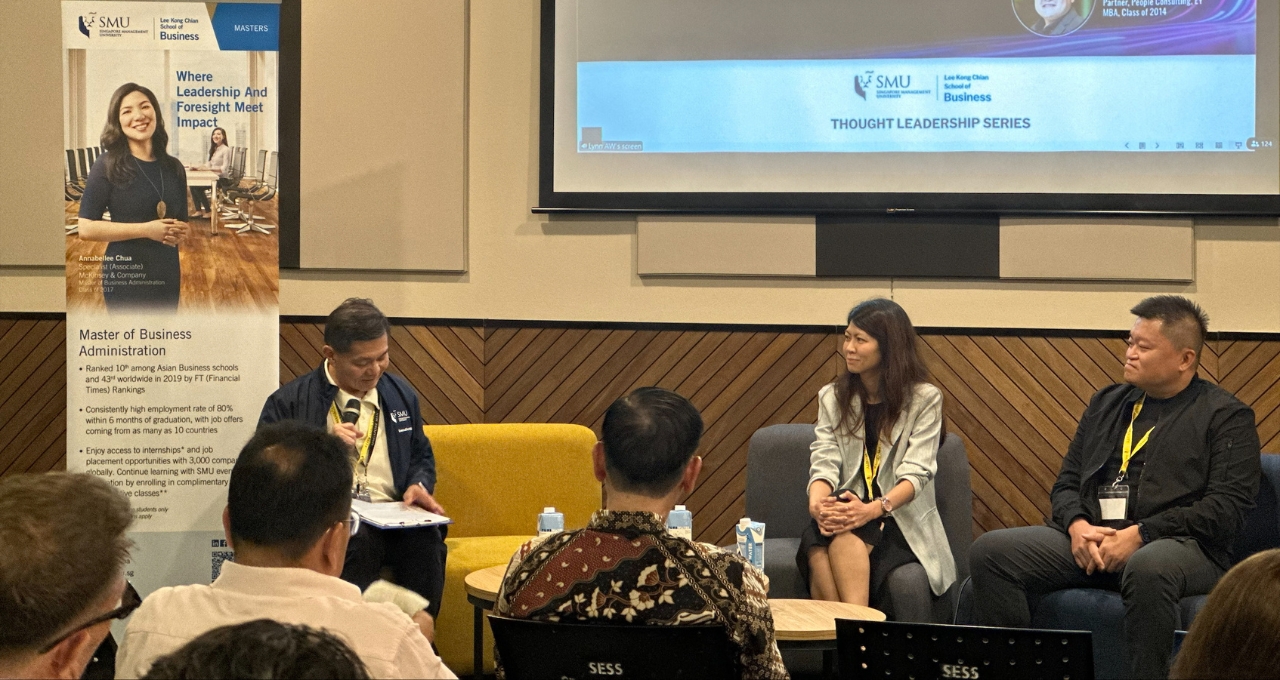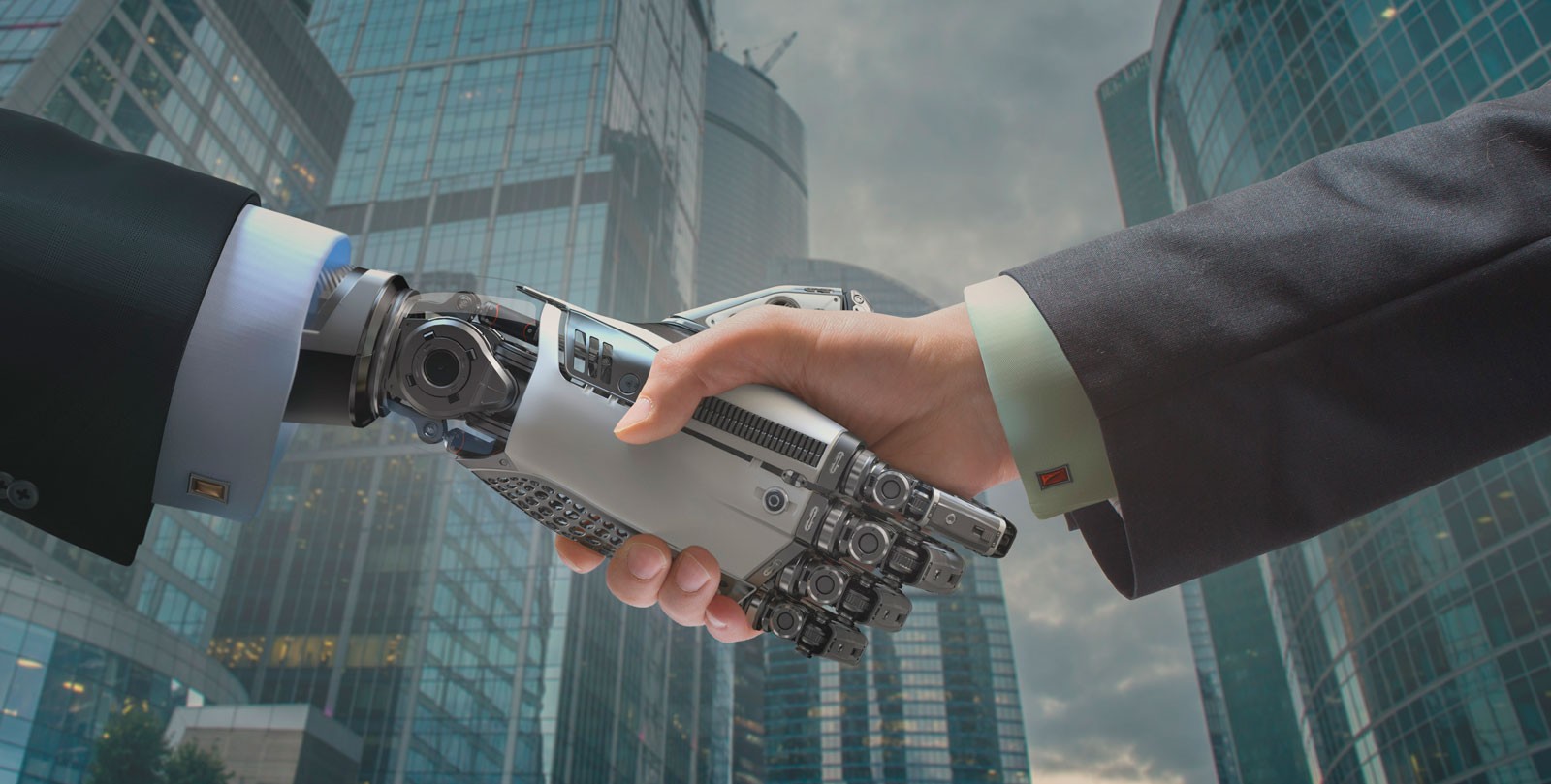[Featured Image: (L-R) Dr Ang Ser Keng, Academic Director of SMU’s Master of Business Administration (MBA) and Executive Master of Business Administration (EMBA) programmes; Ms Jovin Ong, Executive Director of HR & Communications at 8M Real Estate; Mr Goh Jia Yong, Partner at EY People Consulting and SMU MBA alumnus]
As AI technologies become more embedded in the workplace, the idea that an algorithm could influence your next promotion is no longer science fiction. From productivity assessments to behavioural analytics, AI tools are increasingly being used to inform decisions once made solely by people.
But this raises urgent questions: How should organisations balance efficiency with empathy? What happens when the drive to quantify performance runs up against issues of trust, fairness, and privacy?
These were just some of the themes discussed during a recent panel hosted by Singapore Management University (SMU), titled “Navigating the Future of HR: Performance, Resilience & AI.”
Moderated by Dr Ang Ser Keng, Academic Director of SMU’s MBA and EMBA programmes, the session featured perspectives from:
- Mr Goh Jia Yong, Partner at EY People Consulting and SMU MBA alumnus
- Ms Jovin Ong, Executive Director of HR & Communications at 8M Real Estate
From Efficiency to Empathy: AI in the Workplace
The panel began by addressing a common concern: Will AI make HR more impersonal?
While acknowledging growing apprehension around automation, both speakers highlighted the opportunity to use AI as an enabler rather than a replacement. They pointed to practical examples, such as using chatbots to handle routine queries or digital platforms to support learning and development. These tools, they noted, free up HR professionals to focus on more strategic and human-centric responsibilities.
At EY, for instance, AI is viewed through a three-part model—Augment, Replace, Enhance (ARE). The model provides a framework for understanding how AI can:
- Augment human capability and improve efficiency
- Replace repetitive or low-value tasks
- Enhance decision-making and enable new ways of working
The discussion also differentiated between “AI for HR”—where AI is used to optimise HR functions like recruitment or performance reviews—and “HR for AI”, which positions HR as a key player in driving ethical AI integration and workforce redesign.
The panellists agreed: the real opportunity lies in using AI to elevate human potential, not diminish it.
Rethinking Performance Reviews in the Age of AI
Another focus of the panel was how AI is transforming performance management. Traditional annual reviews are giving way to more continuous and data-driven approaches.
The panellists noted that organisations now have tools to evaluate performance more holistically. These systems can incorporate data on collaboration, adaptability and agility—qualities increasingly valued in modern workplaces.
Yet as performance tracking becomes more granular, it also introduces new challenges. One concern raised during the broader discussion was the risk of employees adjusting their behaviour to “game” the system—optimising for metrics that the algorithm rewards, rather than working toward meaningful business goals. This shift could erode intrinsic motivation and undermine collaboration.
Another layer of complexity comes from the growing use of AI-enabled surveillance tools, such as digital productivity monitors, keystroke tracking, or behavioural analytics. While these tools may provide valuable performance insights, they also raise critical questions about transparency, consent, and ethical boundaries.
As organisations adopt such technologies, they must weigh the benefits of insight against the risks of eroding employee trust. Systems must be designed not just to track output, but to respect human dignity.
Resilience and Purpose in Times of Disruption
Beyond digital transformation, the panel also explored what organisational resilience looks like in an era of ongoing disruption.
Reflecting on lessons from the pandemic, the speakers emphasised that resilient organisations are anchored by clear purpose but flexible in execution. Companies that retrained and redeployed staff—rather than relying solely on cost-cutting—demonstrated stronger alignment between business continuity and employee well-being.
Fairness, adaptability, and long-term thinking emerged as key traits of companies that thrived during uncertainty. The message was clear: technology is only one part of the equation. Purposeful leadership is what sustains performance in turbulent times.

Addressing AI Bias: Governance and Inclusion
The conversation also surfaced growing awareness of bias in AI systems. Since AI is trained on human data, it can inadvertently reinforce existing inequalities—unless actively managed.
The panel highlighted that diverse data sets, inclusive design processes, and robust governance are essential to mitigating bias. This includes engaging multiple stakeholders in the development and deployment of AI tools, particularly when those tools influence high-stakes decisions like hiring or promotions.
Ensuring that AI systems remain explainable, auditable, and fair is a shared responsibility—one that HR professionals are well positioned to lead.
Shaping the Future of Work With Intention
The discussion at SMU’s panel underscored a central truth: while AI has the potential to transform HR, its impact ultimately depends on how it is implemented and governed.
HR professionals must be ready to lead not just digital transformation, but also cultural and ethical change—bringing together technology, people and purpose.
At SMU, programmes like the MBA and EMBA are designed to equip professionals with the skills and mindset to thrive in this evolving landscape—blending strategic insight with human-centred leadership.
In a workplace where algorithms can influence your next promotion, how will you ensure that people—not just data—remain at the heart of performance and progress?
Discover more about the SMU MBA at the SMU Masters Day on 11 October.





